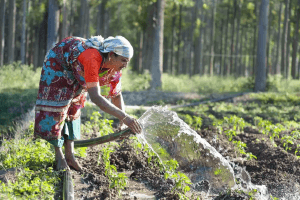Despite employing a substantial 43 per cent of India’s workforce, the agricultural sector contributes only 16 per cent to the national GDP (The World Bank, 2024). This reflects some of the challenges the agricultural sector faces in India. 86 per cent of India’s farmers fall in the small and marginal category with landholdings of less than two hectares (Ministry of Agriculture and Farmers Welfare, 2019).
The main impact of this fragmentation has been a reduction of mean plot size below the threshold for mechanization, inefficient land use, and substitution of labor for mechanical and chemical technology, which has curtailed agricultural productivity and profitability for smallholder farmers. By consolidating farmers into Cooperatives or Producer Companies (FPCs), Farmer Producer Organizations (FPOs) in India have ensured that farmers have greater control over their produce. While some FPOs have achieved remarkable success, many struggle because of operational inefficiencies and difficulties securing credit and market access.
As part of the SARDI India MSME Tech Policy Fellowship Program (an initiative by USAID & DAI and anchored by LEAD at Krea University), this research delves into the levels of digital adoption by FPOs and their member farmers across various dimensions of digital technology. The study also identifies successful strategies and highlights areas where rethinking and designing of interventions are required. These insights are expected to inform strategies that foster higher digital adoption within FPOs, creating a “trickle-down effect” where member farmers are empowered.





